Unless you've been locked in Berghain for the last six months, you'll know Trainspotting 2 — dubbed T2: Trainspotting — is set to pull into cinemas on January 27th — and there's every chance it will shake the world with as much vigour as its forerunner did in the mid-‘90s.
The original team has reunited after various fallings out. Ewan McGregor was reportedly peeved that director Danny Boyle cast Leonardo DiCaprio in The Beach, having been promised the role, only to make up publicly in Hollywood years later, and writer Irvine Welsh is predicting big things for the movie.
Speak to people who saw Trainspotting in 1996 and they'll explain that nothing could come close to reflecting the sentience of truth that Danny Boyle achieved — not Pulp Fiction, Human Traffic, Boogie Nights, The Matrix, American Beauty or Buffalo 66. It was perhaps the defining film of the 1990s. There’s a lot to live up to.
The glam-realism and sheer gall of the original became the best reflection of blatant Britpop defiance — knowing there was no choice other than to “Choose Life. Choose a job. Choose a career. Choose a family. Choose a fucking big television, choose washing machines, cars, compact disc players and electrical tin openers…” Trainspotting reflected the era's unprecedented swallowing of pills, thrills and bellyaches. These were the days before everyone held a screen in their pocket, when the Criminal Justice Act turned rave into a taxable commodity, when the current humanitarian crises were not backdoors into the pockets of Cayman Islanders.
Before Trainspotting the movie, the first edition of Irvine Welsh's debut book — with its silver skeleton embossed cover — was passed around like a gift of light. Then there was the play, which starred a young Ewan McGregor, before the amplified vision arrived — the film, shining like a sun over the disillusioned who'd been too busy munching on ecstasy to read anything other than flyers for years.
Who can save us now? Perhaps the super-size pin-ups of Renton, Sickboy, Begbie and Spud will become unification saviours once more, with Underworld and Iggy Pop collapsing divisions of genre, paving the way for new ones, in a splurge of unprecedented hedonism, rebellion and belief that there is an alternative. Even if porn is that answer...
There were no advance screenings of T2 to be had before Christmas, so DJ Mag had to approach this interview with Irvine somewhat blind, so to speak…
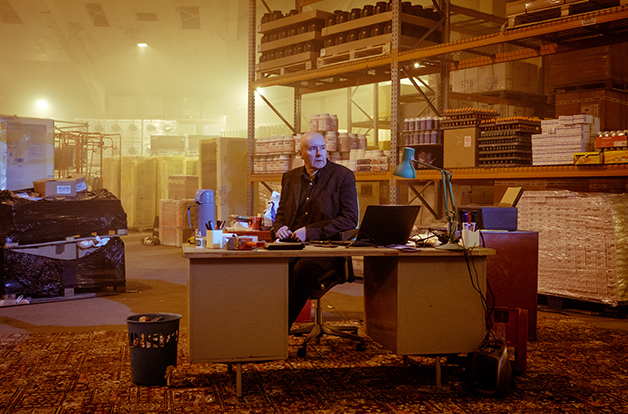
Irv, the last time this DJ Mag writer officially interviewed you was back in the Creation Records offices in Primrose Hill in the ’90s, with you wearing an assortment of wigs. And we've seen some times since, eh? Red carpets in Cannes, The Acid House, Kris Needs falling off the podium when I carried on DJing with Danny Rampling — or ‘Danny Sampling’, as you used to call him… Manumission. That singing monkey... How the fuck did you manage to write back then?
“Never mind how fucked up I am, I can always write. And I'll always get on with it. I'll have been writing Glue and Filth and Porno round about then.”
Porno, the book that T2 is based on, pushed shock beyond what you thought was capable. Re-reading it now, the shock makes way for an incredible bit of literature...
“It's one of these strange books that's grown a bit in potency. It suffered by comparison to the first book [Trainspotting] at the time, which was seen not as a book but as a cultural phenomenon. And I think when you get a bit of distance from it and you just read [Porno] as a story, it becomes a lot more interesting.
“The problem we had with it, in terms of the script, is that I personally don't like it — and I think Danny [Boyle] and John [Hodge, the scriptwriter] were the same, we kinda agreed — when you show a film within a film, and it's about them making a pornographic film. It wasn't really working to our satisfaction in the earlier drafts. It was a big stumbling block, so we had to find a way to make him work in the vice industry without making it into a porn flick.
“So we managed to get around that, and sort it out, and I'm not gonna tell you how, because that's a spoiler, but the second thing was, we wanted something that was right now, and the thing is, the porn in Porno [the book] was very much about that time in the late ‘90s, early 2000s, when everyone was getting into that Do It Yourself sex scene…”
So there's no porno flick in Porno/T2?
“We wanted to make it about now, we didn't want to make it a historical movie of the 2000s, we wanted to make it about 2016. The technology, the DIY stuff and all that, it kinda died out, and the porn operators moved into that with their higher production values and stuff, and it's now all the big operators who do pornography, there isn't that kinda DIY culture…”
Now there's peer-to-peer porn, wanking on WhatsApp, dick pics on private messages...
“Yeeeah — so it has changed. The 50 Shades thing, women consume more pornography than men, I think it's got to 55% [women] 45% [men].”
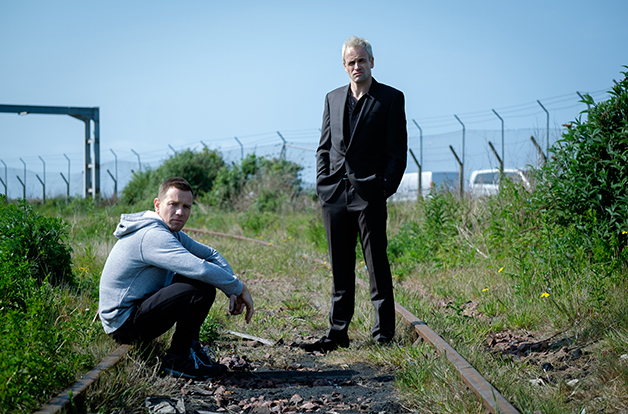
Wow…
“Because it's been taken away from the backstreets — the old story wouldn't have been a viable thing. So all the narratives change because of that.”
Excellent — can't wait for the truth to be stripped back...
“Yeah, that was the second challenge! You don't want 45-year-old guys playing at being 35-year-old guys (some of them get away with it better than others) — it's best to have the actors as they are, artistically. And it's nice to make a statement about the world as it is now, so we were basically spending a lot of time going through the old scripts, as to how we would do this now, as a contemporary film — but we found a way.
“John did a fantastic script that got everybody excited, and got all the actors excited to come back, and Danny's made a great film, it's an absolutely amazing film, and in some ways it's a much bigger film than the first one. It seems a lot more emotional and character-driven, cos the characters have been established now.”
Well, you must know your characters really well, as you've worked with them so much in other books...
“Yeah, I've never stopped writing about them, so I've got a lot of material that's not been published. It's interesting that Danny and John have not just used stuff from Porno, they've used stuff from Trainspotting and [Trainspotting prequel] Skagboys, and even Blade Artist [the Begbie solo book], and the whole universe of these characters. They really understand it as well as I do. They've spent so much time on it, and to some extent we've been working on this, researching and thinking about it, for 15 years. It's not something that just happened.”
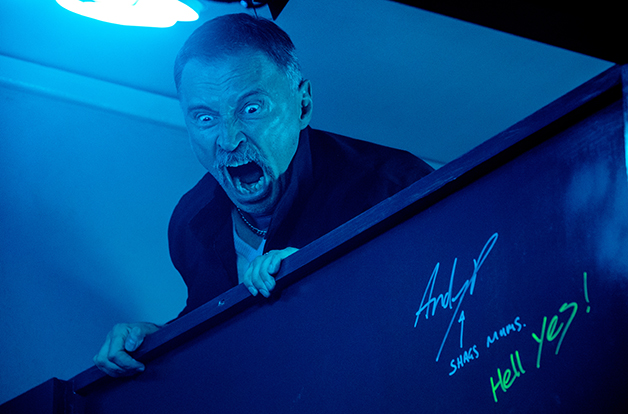
Who pushed for it, though?
“We've all been pushing for it to happen. We've had scripts ever since Porno came out [2002], and then having the personal stuff — the fall-outs and everyone together, because we're all working on different things — has been difficult.
“It was also that the scripts we'd had in the past weren't quite there — it took a while to get a script we were confident of shooting. Nobody wanted to trash the legacy of Trainspotting, and we wanted to do something really good. So a couple of years ago, we spent a couple of weeks in this flat in Edinburgh, in this big dollar house, just to see if we could all get on together and if we could find a way of doing it. That satisfied everyone from the money point of view, but also whether we could get onto something that would really work.”
So you didn't get wasted?
“It was middle-aged guys hanging out together doing nice things, sourcing restaurants, cooking for each other, but we went around a lot of boxing clubs, and hostels and talking to people, getting a feel for that kind of world — one dollar saunas, it was fun. But it was focused, we weren't getting totally fucked up cos we were trying to keep focused on the script and the book and the stories, so the main thing was to light a fire under John to come back with something good.”
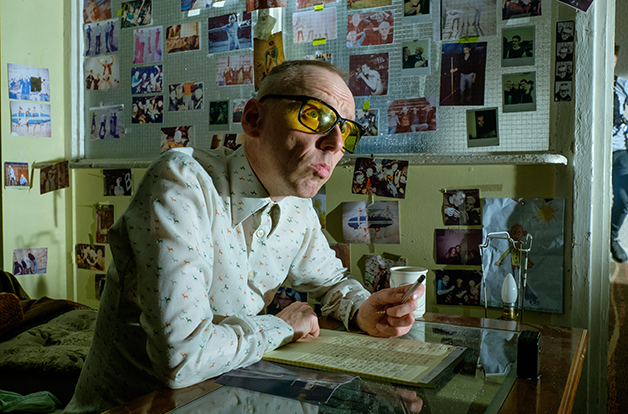
And how are you feeling about it?
“I'm feeling great about it. The [test screening] scores are through the roof, and it's such a great piece of work — combine the films together and it feels like a European Godfather. It's very, very big, it's massive when you come out of the cinema, it's very action-packed and bang-bang-bang-bang-bang, and you feel kinda 'Fuck me!' — so much to think about and I want to see it again, and there are so many things going on in it, it's amazing.
“I don't want to talk about the [story] because I want people to see it but I will say to me it feels like a really big movie — it feels like it's huge, grabbing all the youth cultures of our times for the past thirty years and there's a strong hold and take on it, so it massively adds to it. It felt big when the first film came out, but this film feels even bigger — it feels like it's kinda snowballed.”
So, Irv, we were DJing at the height of your post-Trainspotting fame. I was barely twenty, but — to explain to readers — you, Kris Needs and I had a band called the Disco Queens, because you missed disco — being such righteous punks. Why did you get into DJing?
“That was me kinda not getting with fame, not dealing with it. The whole ethos of the house music scene is that there's no real stars, the DJ's not the star, he's just the guy spinning the music, so there's a kind of easy involuntarianism thing — and it's much better for me psychologically than hanging around all the literary salons of London, where you'd be fussed over and feted about. Being more with that kinda straight society where there's a bit more pomposity and state of consciousness. It was fun, and you were just the kind of guy who'd done some interesting shit, not the guy where someone was making a big fuss of you, y'know?”
Good times... so what drugs are they doing in T2?
“You'll have to wait and see, I'm not gonna tell you. There are some very fun drug sequences in there.”
Good, looking forward to those. So you've got a cameo in it again...
“Yeah, my character's one of the few that's gone up in the world since then, Mikey Forrester, he's quite a high-flyer in this one, so it's good to see that...”
Good luck with it...
“I had to leave the country last time. I might have to leave the planet this time.”
So tell DJ Mag about the soundtrack, please...
“Again, the picture's not been locked, so the sound's not been locked yet [this interview took place before Christmas]. There's some great stuff we've got, great dance music, great rock & roll, but it depends what works with every single scene.
“Like y'know Young Fathers? I sent Danny stuff from that, as I got to know them through Edinburgh, and mutual friends and stuff, and he got really into them, so I'd be surprised if some of their stuff wasn't on it. Some of the artists from the original one have submitted stuff, but it's really about what's going to work with the picture.”
You've been doing a lot of TV and film work, too...
“I'm kinda working on a TV show of Crime and another one of the Trainspotting books as a show, and we've got a script for the Sex Lives Of Siamese Twins, and I think there's a script for Glue now too. I'm actually working with Sony now on an acid house and Ibiza-orientated show. And I'm working on straight films that aren't anything to do with the books as well, so I'm kinda kept busy.”
You have one helluva work ethic, for sure. Do you feel you've been part of a tribe? Dance music? Writers? Squatting?
“I think that's what we've missed after the big globalisation thing of 2000, and I've always felt an attachment to them. I mean, it's ridiculous of me now to think of myself as a football thug, or a punk, or a whatever, but I feel very much defined by these things.”
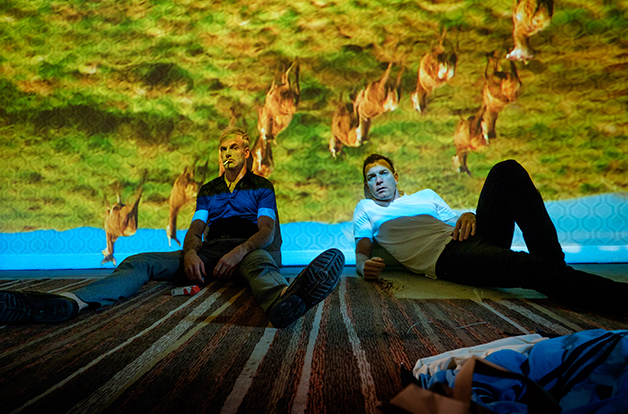
We need to have these things as identifiers to put us into places, but they can be a trap too...
“That's the thing, it's all about forming groups and finding your new identity, and feeling a bit constrained by that, and breaking out of it, and it should be something that we keep doing. Groups as a whole are very educative, and very disruptive as well if you stick around too long — you've got to keep moving.”
If you were to give a DJ a Nobel Prize for DJing, who'd score?
“I would probably go for the British thing; Rampling, Oakenfold and Nicky Holloway, depending on the version of acid house you're listening to — the London version rather than the Manchester version, the guys that bought it all back from Ibiza. I was in London at the time, so that version made more sense to me, that was the sort of central narrative, y'know, they all get shrouded in mythology...”
Favourite DJs — who'd be at the top of your list? You must still have some exposure to the culture, being in Chicago, and spending a bit of time in Miami...
“Yeah, that's kinda a huge question — but Carl Cox, he's been there, all the time, he was there at the start, and he's still there now, and doing interesting stuff — and if we're looking at history and legacy, Mancuso...”
He just died...
“...and Knuckles, god rest their souls. And Derrick Carter, he runs a club just round the corner. And showing a bit of Scottish bias, he's not one of these just big hits guys — Calvin Harris.”
He's a brilliant producer.
“He can play really cool heavy house, but also really commercial EDM in a Vegas superclub — he has that kind of range, and he has popularised it in the States. The guys that I would go and see, they wouldn't be big names, they'd be DJ Sneak or Juan Atkins, and I've not heard from Sven Vath for a while (giggles), but I'd go to one of his gigs — if I was going to an all-nighter, I'd go to his.”
Carl Loben, DJ Mag's editor, whose house in Dalston you went to back to in the ‘90s after meeting him on a train, was asking if you're setting up Renton for a solo book, as he appears at the end of Blade Artist reading DJ Mag...
“That's possibly the case, ha ha ha!”
And how come it was DJ Mag?
“Carl's quite chuffed at me for that, uh?!”
We still party like it's 1999 when we get together — who else has that effect on you?
“Every time I see Dave Beer, I pick up where I left off, and it's like we're still in that same world. It's like a contract you have with someone, almost — it's like you'll be out for a couple of days.”
Have you retired from DJing?
“It was really since I got work in Hollywood, and it's almost like I've got a second career, and it's almost as if I've just got enough time to do those. I think with DJing, you've got to be on it, you've got to be involved, you can't just keep on playing the same tunes over and over again, you've got to be listening, and if you're not prepared to invest that time in it... Y'know, to me, I used to enjoy it when you could hang out at the record shops and all that, and listen to records, and that appeal — now it just seems like another reason to spend time on a screen.”
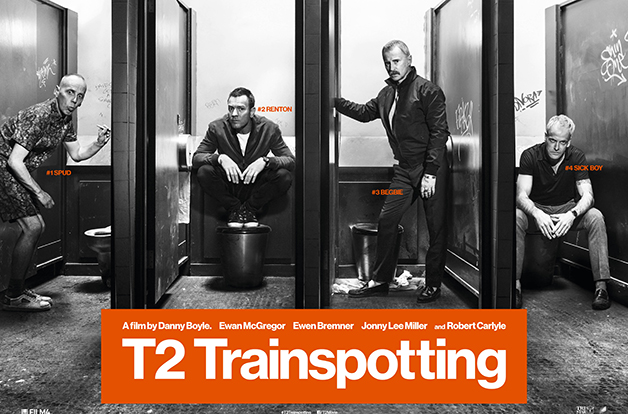
But you still love a dance...
“I've got a pal who runs a club here, in Chicago, and sometimes I'll do a bit of a back-to-back with him, and just for a bit of fun I'll get some pals around the house, put on a bit of music, and we'll bop away with ourselves.”
They can be the best kinda parties...
“The rolling commercialism of the clubs, it's something to do with that — and it is a young person's game, unless you go to a specialist older fucker's club, then there's something about it. You take your music and your drugs, and you can go as crazy or sedate as you want to.”
And you're still clear that legalisation of all drugs is how the world should roll?
“I've been saying the same for years, it has to happen, there's no sense otherwise. This whole prohibition thing is nonsense...”
So T2 is here to save us...
“It's going to be a fucking cool experience, and we've needed something like that — a big cool cultural experience from these islands — for a long, long time. Ironically, the end of neo-liberalism, and the growth of nationalistic white-trash fascism, and the reaction against that will reunite culture again, so I'm kinda excited. Until 2007, everything kinda died.”
There are some massive pricks to kick against...
“And in a sense, it's gonna be such fun kicking against them.”
Words: Kirsty Allison